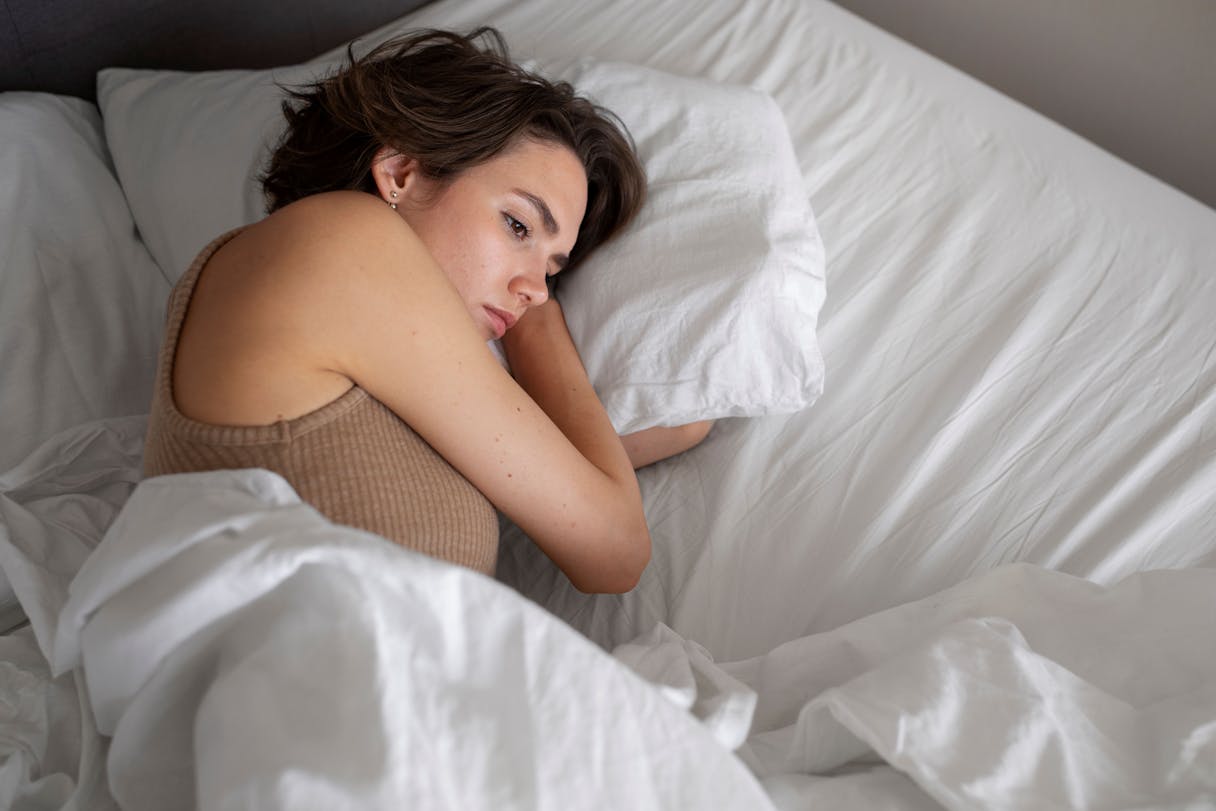Your Comprehensive Guide to Melatonin: Sleep and Mental Health Benefits
For a healthy body and mind, you need somewhere between seven and nine hours of restful sleep each night. But according to the CDC, over a quarter of adults don’t get the recommended amount of sleep. Sleep issues can be caused by many factors, including stress, anxiety, and certain medical conditions.
Over-the-counter melatonin supplements can help some people get a good night's sleep. In this comprehensive guide, we’ll explore the various benefits of melatonin, reveal how to use it safely, and answer some frequently asked questions.
What is melatonin and how does it work?
Melatonin is a hormone produced in the pineal gland in the brain. It plays a key role in regulating our sleep-wake cycle by signaling to the body that it’s time to sleep. Melatonin production naturally increases in the evening and decreases in the morning in response to changes in light exposure.
However, certain factors can disrupt this natural process, such as jet lag, shift work, or using electronic devices before bedtime. Taking a melatonin supplement can help regulate the body’s internal clock, leading to improved sleep quality and duration in some.
The science behind melatonin and sleep
Melatonin works by binding to melatonin receptors in the plasma membrane, binding to intracellular proteins such as calmoduline, binding to orphan nuclear receptors, and neutralizing toxic oxidizing agents (antioxidant effect). It can also decrease levels of dopamine, a hormone that keeps you awake, while also regulating your circadian rhythm.
A study published by NIH found that the treatment with melatonin has positive effects on sleep quality in adults with respiratory diseases, metabolic disorders, and primary sleep disorders—not with mental disorders, neurodegenerative diseases, and other diseases.
The link between melatonin and depression
The correlation between melatonin and pre-existing depression remains unclear. A small 2002 study suggests that people with depression may have elevated levels of melatonin. And a 2006 review of multiple studies appears to show that the brains of people with depression produce more melatonin at night.
Conversely, some evidence suggests that melatonin may reduce the risk of depression in some and improve depression symptoms in others. A 2017 review of eight clinical trials found that melatonin improved symptoms of depression a little bit more than a placebo did. And a 2018 review also found melatonin helped lower depression symptoms for some individuals.
While the findings are promising, more research is still necessary to confirm melatonin's efficacy in managing depression symptoms.
How to use melatonin safely and effectively
Although melatonin is generally considered safe for most people, it’s important to use it properly and follow dosage guidelines. You should also be aware of potential side effects and interactions with other medications.
Dosage guidelines
The optimal dosage of melatonin can vary depending on your age, weight, and sleep issues. In general, experts recommend starting with the lowest effective dose, typically 0.5 to 1 milligram, about 30 minutes before bedtime. If this dose is not effective, gradually increase it up to 10 milligrams, but be aware that higher doses can also increase the risk of side effects.
When to take melatonin for optimal results
The best time to take melatonin for optimal results will depend on your specific sleep issues and schedule. However, it’s recommended to take melatonin about 30-60 minutes before bedtime. Avoid taking melatonin during the day or when you need to be alert.
Frequently Asked Questions about melatonin
Here are some answers to a few frequently asked questions about melatonin:
Potential side effects and how to avoid them
While melatonin is generally considered safe, it can cause some side effects in certain individuals. The most common side effects include headaches, dizziness, nausea, and daytime sleepiness. Starting with a low dose and taking it at the proper time can help you avoid side effects.
Incorporating melatonin into your sleep routine
Thinking about incorporating melatonin into your sleep routine? Here’s what you can do to ensure its effectiveness. First, try to establish a regular sleep schedule and avoid using electronics before bedtime. Additionally, make sure to choose a reputable brand of melatonin supplements and follow dosage guidelines carefully.
If you find melatonin isn’t helping you get quality sleep, seek help from a professional. A credentialed therapist and licensed medication prescriber can evaluate your medical and mental health history to determine the cause of your sleep troubles—and develop a treatment plan to help you overcome them.
With Cerebral, you can see a professional therapist and prescriber online, from the comfort of home so you can finally start sleeping well. Click to get started.
Image by Freepik

Sleep and Mental Health: What is the Connection?

Unveiling the Benefits of Weighted Blankets

What is Cognitive Behavioral Therapy for Insomnia?

Call 911 if you’re having a
mental health emergency
Text Home to 741-741 if you're in emotional
distress and need immediate support
Call or text 988 Suicide &
Crisis Lifeline. Chat service
is available at 988lifeline.org.